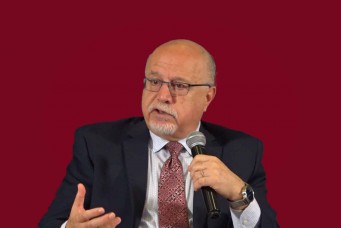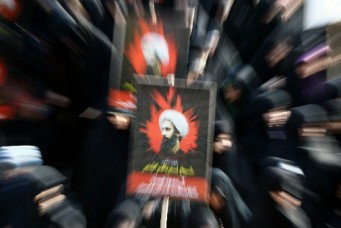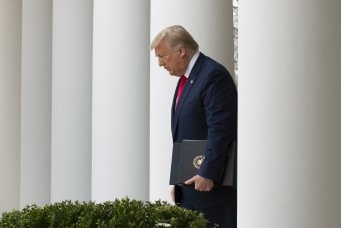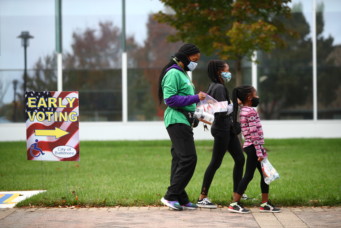Messages to America
I look forward to a more positive U.S. posture in the world arena, however I also call on the international community to take initiatives toward reforming the international system. The matter isn’t an American issue or responsibility alone and should not be. It affects us all.
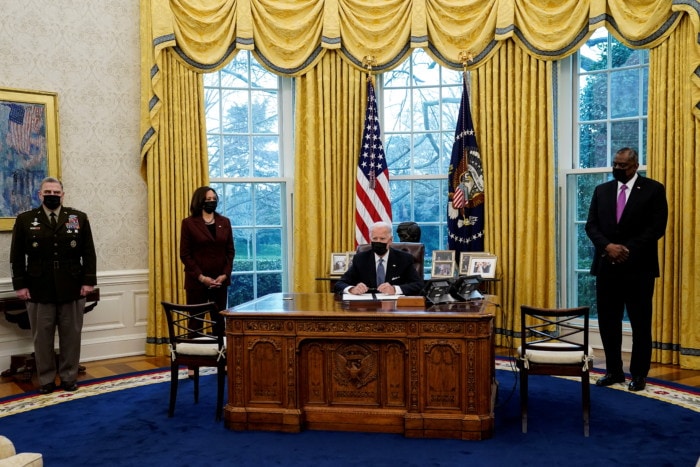
Joe Biden assumed the office of U.S. President on January 20 after a tense and polarized election marked by the outgoing president’s reticence to honor the result, his extraordinary demand toward officials in the State of Georgia to overturn the vote count, and his call to supporters to assemble in opposition to the election certification process.
When protesters breached the halls of Congress on January 6—to the shock and condemnation of the American public and under the shadow of possible legal consequences for the president—Trump backed down somewhat. He called on protesters to respect the law and reluctantly committed to a peaceful transfer of power. But in a stark break from political tradition, he did not participate in the inaugural rituals which all U.S. presidents (except four, the last being Andrew Johnson in 1879) have attended. Congress, in turn, has started impeachment proceedings against the former commander-in-chief on account of his attempts to sway the vote and incite violence at the U.S. Capitol. If successful, an impeachment will prevent him from returning to political life in the future.
Donald Trump has always boasted that he flouts the conventions of traditional politicians, that much is true. My previous writings and statements reflected my distress with many of his policies, especially in regard to the Palestinian issue and his attitude toward the multilateral system. On this last account, the most exasperated with Trump were America’s allies in NATO, who were all the more delighted at Biden’s victory, who adopts many conventional positions, including support for U.S. allies across the North Atlantic. Notably however, Biden addressed foreign affairs in his inaugural speech quite briefly, harping on the common refrain that the United States will return to lead the international community, “not merely by the example of our power, but by the power of our example”.
However, it is naïve to imagine that events in the U.S. or around the world will stabilize simply because a traditional president has replaced an erratic one. The challenges and transformations in the world order are simply more profound than that. For this reason, I am obliged to direct a number of messages to America as well as its partners.
First, on the domestic level, if the U.S. truly desires to unite its people despite their diversity, then it must remedy the deep resentment felt by its citizens on both the left and right of the ideological spectrum towards the nation’s political and economic leaders. It must also ameliorate the widespread polarization in the country. Interestingly, Biden devoted much of his address to this subject. I will not propose particular recommendations on this matter, as every people must forge its own way without external intervention.
Second, on the international level, if the United States hopes to preserve its global standing, its leaders must recognize that international, regional, and domestic balances of power have shifted. Indeed, all states must reconsider their relationships with allies, friends, competitors, and foes alike.
The United States in particular must define whether it aspires to remain a superpower, benefiting from the opportunities of global influence but bearing the obligation to preserve international peace and security. If so, the U.S. must work to guarantee the fairness and longevity of the international system. Alternatively, America may decide to become an isolated giant, only concerned with the narrow, direct interests of the short term.
Either way, the United States must integrate into the new international order; the bipolar world of the Cold War has metamorphosized into a multi-polar arena. Regional disputes multiply while global, strategic confrontations recede in the background. All the while, the mantle of economic power is on the brink of moving from the largest capitalist country in the West to the People’s Republic of China.
The United States must also accept a global, multilateral form of democracy of which a multiparty system built on consensus, not domination, is an integral part. This will require taking more constructive positions toward multilateral institutions and their treaties. Encouragingly, there are indications that the U.S. intends to return to that leadership role. The recent U.S. ascension to the Paris Climate Accord is case in point. The U.S. must also adopt a proactive stance on disarmament-related negotiations, especially with regard to nuclear non-proliferation and the peaceful use of outer space.
American leaders must also let go of the belief of American exceptionalism—that their country’s experience is “unique and exceptional” and the insistence that others must follow its model. Former Secretary of State Colin Powell has of late criticized this posture of dictating policy and called for the United States to work with other countries with greater respect. A few months ago, Biden’s candidate for director of the Central Intelligence Agency William Burns also wrote an article that his country “does not have the patience or the dexterity to spread democracy abroad.
Third, if the United States wishes to preserve its global influence it must prioritize active diplomacy, particularly tools of international mediation. Military action will not command domestic support in the absence of a direct, strategic threat to U.S. national security, especially given the “operational fatigue” the nation suffered in the aftermath of the Iraq invasion. The recourse to excessive force against small and middle-tier states will also meet rebuke in the international arena.
Rather, America should engage in legitimate international competition in both economic and political realms. The U.S. after all emerged victorious over the Soviet Union economically, before it won the ideological and security contest. The time has come to aggressively negotiate with Russia and China without falling into cycles of hostility and chronic polarization
Fourth, if America aspires to be an authentic guardian of peace and stability in the Middle East even after its total acquiescence to the Israeli right it must recognize a Palestinian state based on 1967 borders headquartered in East Jerusalem. The U.S. consulate in the city should also reopen. America must once again pursue durable Israeli-Arab peace in accordance with international law, rather than entrench and condone the illegal status quo. This goal may be accomplished by the call to freeze conditions on the ground and immediately resuming talks between Israel and the Palestinians under the auspices of the United Nations and the participation of the United States and other permanent members of the U.N. Security Council. Israeli-Palestinian bilateral Talks would precisely delineate the borders of the Palestinian state and resolve other detailed issues in the negotiating arena.
The United States should also address the risks of nuclear proliferation in the Middle East in a more holistic and detailed manner, simultaneously building on the positive elements of the Iran Nuclear Deal while patching its deficiencies. Intensive negotiations must convene to guarantee a region permanently and totally free of nuclear weapons, as well as other weapons of mass destruction. Talks should include Iran, Israel, and all Arab states, and provide steps to build trust between Tehran and its Arab counterparts. These measures can pave the way for arrangements and assurances to reduce the regional political tensions. Analogous steps between Turkey and the Arab world will also be useful.
I look forward to a more positive U.S. posture in the world arena, however, I also call on the international community to take initiatives toward reforming the international system. The matter isn’t an American issue or responsibility alone and should not be. It affects us all.
Nabil Fahmy is a former foreign minister of Egypt. He is also Dean Emeritus and Founding Dean of the School of Global Affairs and Public Policy at the American University in Cairo. He served as Egypt’s ambassador to the United States from 1999 to 2008, and as envoy to Japan between 1997 and 1999. On Twitter: @DeanNabilFahmy.
Read More
